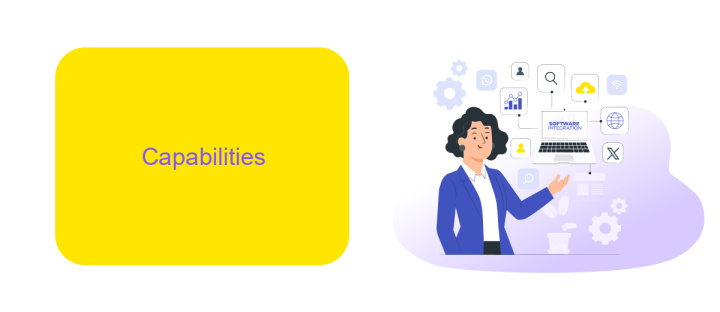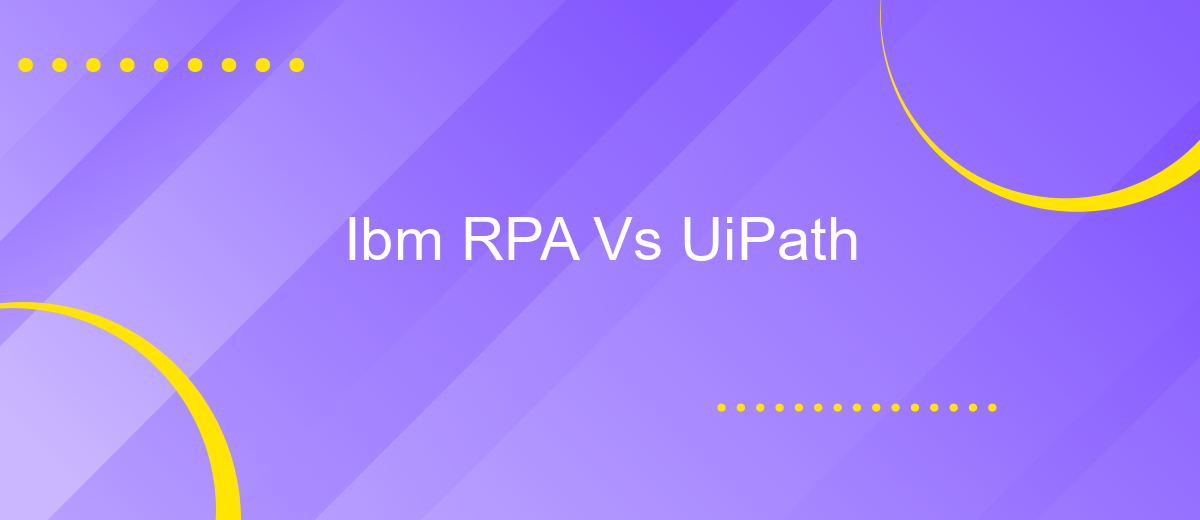Ibm RPA Vs UiPath
In the rapidly evolving landscape of robotic process automation (RPA), IBM RPA and UiPath stand out as two leading platforms. Both offer robust solutions for automating business processes, but they differ in features, ease of use, and scalability. This article delves into a comparative analysis of IBM RPA and UiPath, helping you determine which tool best aligns with your organizational needs.
Introduction
In the rapidly evolving landscape of business automation, IBM RPA and UiPath have emerged as leading solutions. Both platforms offer robust tools for automating repetitive tasks, enhancing productivity, and reducing operational costs. However, choosing between the two can be challenging due to their unique features and capabilities.
- IBM RPA is known for its strong integration with IBM's broader suite of AI and cloud services.
- UiPath excels in its user-friendly interface and extensive community support.
- Both platforms support a wide range of integrations, including with services like ApiX-Drive, which facilitates seamless connectivity between various applications.
This article aims to provide a comprehensive comparison of IBM RPA and UiPath, focusing on their key features, ease of use, integration capabilities, and overall performance. By the end, you will have a clearer understanding of which platform is better suited to meet your organization's specific automation needs.
Capabilities

IBM RPA and UiPath are powerful tools in the realm of robotic process automation, each offering unique capabilities. IBM RPA excels in its integration with IBM’s broader suite of AI and cloud services, providing a seamless experience for businesses already utilizing IBM technologies. It offers advanced analytics and machine learning capabilities, enabling users to build intelligent bots that can learn and adapt over time. Additionally, IBM RPA supports a wide range of integrations through its robust API framework, making it easy to connect with various third-party applications.
UiPath, on the other hand, is renowned for its user-friendly interface and extensive library of pre-built automation templates. This makes it accessible for users with varying levels of technical expertise. UiPath also boasts a strong community and extensive documentation, which can be invaluable for troubleshooting and learning. Moreover, UiPath supports integrations with numerous services, including ApiX-Drive, which facilitates seamless data transfer and synchronization between different applications. This enhances the overall efficiency and effectiveness of automation processes.
Pricing

When comparing IBM RPA and UiPath, pricing is a significant factor to consider. Both platforms offer various pricing models to cater to different business needs, but they differ in structure and flexibility.
- IBM RPA: IBM RPA typically offers a subscription-based pricing model. The cost can vary depending on the number of bots, the complexity of tasks, and additional features required. IBM also provides enterprise-level packages that include support and maintenance.
- UiPath: UiPath offers a more flexible pricing structure with options for both monthly and annual subscriptions. Their pricing tiers include Community, Studio, and Enterprise editions. Each tier provides different levels of access to features and support, making it easier for businesses of all sizes to find a suitable plan.
Additionally, both IBM RPA and UiPath can be integrated with various third-party services to enhance functionality. For instance, ApiX-Drive can be used to streamline these integrations, allowing businesses to connect their RPA tools with other applications seamlessly. Understanding the pricing and integration capabilities of each platform can help businesses make an informed decision.
Use Cases

IBM RPA and UiPath are two leading robotic process automation tools that cater to diverse business needs. They both offer unique strengths, making them suitable for various use cases across different industries.
IBM RPA excels in scenarios requiring deep integration with IBM's suite of enterprise solutions, such as IBM Cloud and Watson AI. It is particularly effective for industries like finance, healthcare, and manufacturing, where compliance and security are paramount.
- Automating repetitive data entry tasks
- Streamlining customer service operations
- Integrating with legacy systems
- Enhancing document processing workflows
UiPath, on the other hand, is known for its user-friendly interface and extensive community support, making it ideal for businesses looking to quickly deploy automation solutions. It is widely used in sectors like retail, telecommunications, and logistics. For seamless integration with various applications and services, tools like ApiX-Drive can be leveraged to connect UiPath with other software, enhancing its functionality and efficiency.
Conclusion
In conclusion, both IBM RPA and UiPath offer robust solutions for automating business processes, each with its own set of strengths and weaknesses. IBM RPA excels in integrating seamlessly with other IBM products and services, providing a comprehensive ecosystem for enterprises heavily invested in IBM technologies. On the other hand, UiPath stands out for its user-friendly interface and extensive community support, making it an ideal choice for organizations looking to quickly deploy and scale their automation efforts.
When considering which platform to choose, it is essential to evaluate your specific business needs, existing infrastructure, and long-term goals. Tools like ApiX-Drive can further enhance the integration capabilities of both IBM RPA and UiPath, offering a streamlined way to connect various applications and services. Ultimately, the right choice will depend on your organization's unique requirements and the level of support and customization you seek in an RPA solution.
FAQ
What are the main differences between IBM RPA and UiPath?
Which tool is more suitable for small to medium-sized businesses?
How do both platforms handle integration with other software systems?
Which platform offers better scalability for growing businesses?
What kind of support and community resources are available for IBM RPA and UiPath?
Time is the most valuable resource in today's business realities. By eliminating the routine from work processes, you will get more opportunities to implement the most daring plans and ideas. Choose – you can continue to waste time, money and nerves on inefficient solutions, or you can use ApiX-Drive, automating work processes and achieving results with minimal investment of money, effort and human resources.

